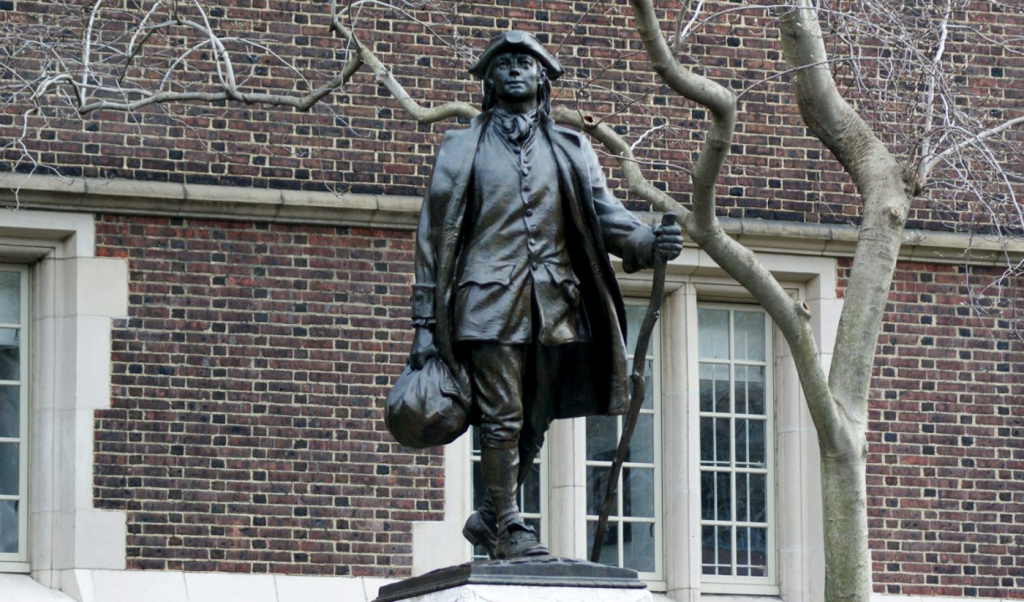In 1723, a young man named Benjamin Franklin arrived in Philadelphia, penniless and disheveled. Little did the city know, this unassuming figure would become one of the most influential citizens in American history. Franklin’s journey from a humble apprentice to a world-renowned polymath is a testament to the power of curiosity, hard work, and the American spirit.

From Humble Beginnings to Printing Prodigy
Born in 1706 in Boston, Franklin was the 15th of 17 children in a devout Puritan family. His formal education ended at age 10, but his insatiable curiosity led him to teach himself through voracious reading. At 12, he became an apprentice in his brother’s printing shop, where he honed his skills and discovered his passion for writing. Using the pseudonym “Silence Dogood,” Franklin penned witty and insightful essays that captivated readers and hinted at his future brilliance.
The Rise of a Renaissance Man
Franklin’s talents soon outgrew Boston. At 17, he fled to Philadelphia, where he quickly made a name for himself in the printing industry. By 22, he owned his own printing business and published the Pennsylvania Gazette, which became one of the most popular newspapers in the colonies. His Poor Richard’s Almanack, filled with practical advice and clever aphorisms like “Early to bed and early to rise, makes a man healthy, wealthy, and wise,” cemented his reputation as a writer and thinker.
But Franklin wasn’t just a printer and writer. He was a scientist, inventor, and entrepreneur. His experiments with electricity, including the famous kite experiment, earned him international acclaim. He invented the lightning rod, bifocal glasses, and the Franklin stove, among other innovations. Despite his many achievements, Franklin never patented his inventions, believing they should benefit society freely.
A Statesman and Revolutionary
Franklin’s brilliance extended beyond science and literature. He was a passionate advocate for civic improvement, founding institutions like the Union Fire Company, the University of Pennsylvania, and the American Philosophical Society. His efforts to unify the colonies during the Albany Congress of 1754, though initially unsuccessful, laid the groundwork for future cooperation.
When tensions between Britain and the colonies escalated, Franklin became a key figure in the fight for independence. He helped draft the Declaration of Independence, secured crucial French support during the Revolutionary War, and negotiated the Treaty of Paris that ended the war and recognized American independence. His diplomatic prowess and unwavering commitment to liberty earned him the title “The First American.”
Cultural Impact and Modern Connections
Benjamin Franklin’s legacy is woven into the fabric of American identity. His emphasis on self-improvement, civic responsibility, and scientific inquiry continues to inspire generations. The values he championed—hard work, ingenuity, and a commitment to the common good—are cornerstones of the American Dream.
Today, Franklin’s influence is everywhere: from the lightning rods that protect our buildings to the public libraries that democratize knowledge. His story reminds us that greatness often begins with humble origins and that the pursuit of knowledge and virtue can transform not only individual lives but also the course of history.
As we navigate the complexities of the modern world, Franklin’s wisdom remains a guiding light. His belief in the power of unity, innovation, and perseverance echoes in the ongoing quest for a more just and enlightened society. Benjamin Franklin wasn’t just the first American—he was the embodiment of the ideals that continue to define the United States.

No comments yet.